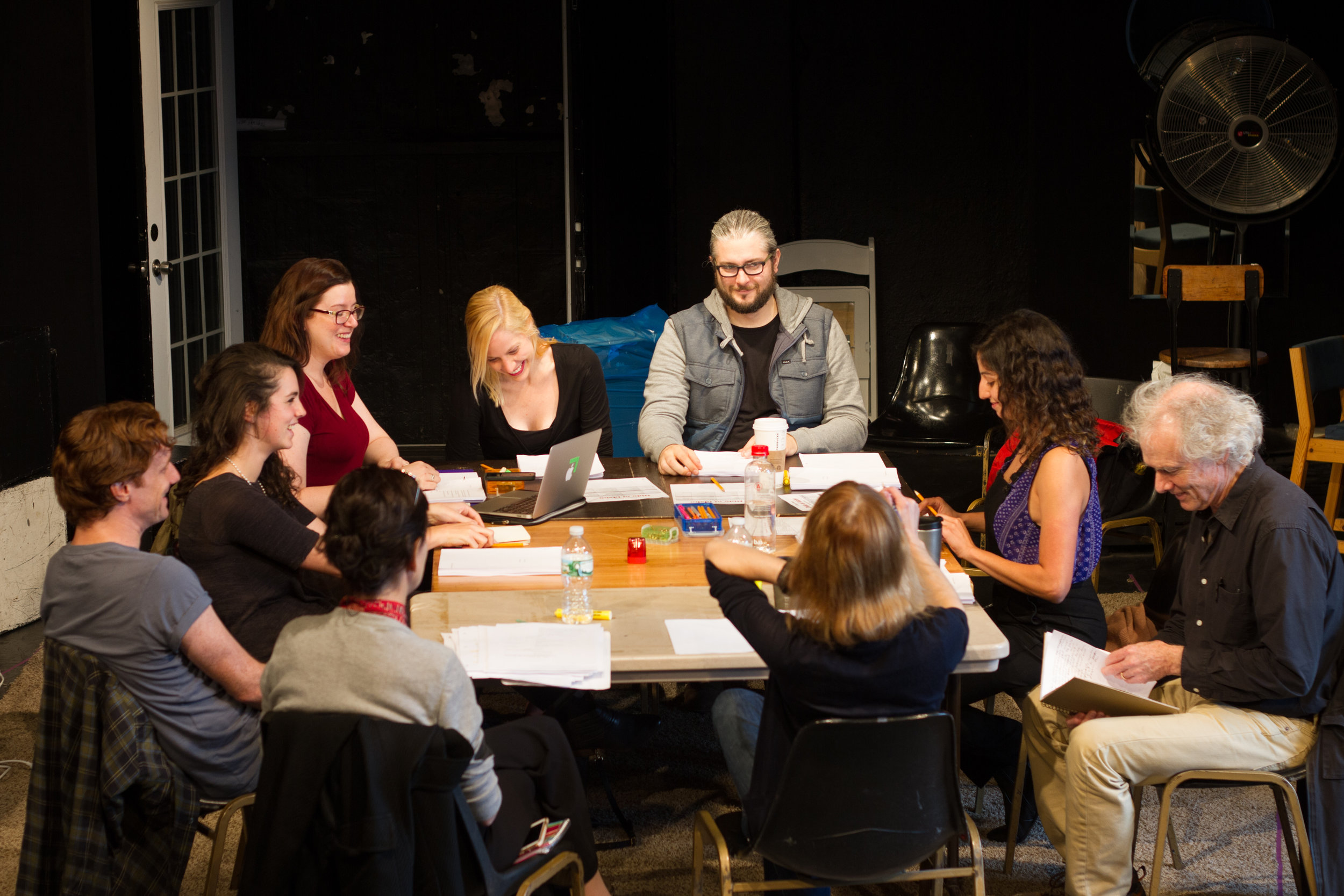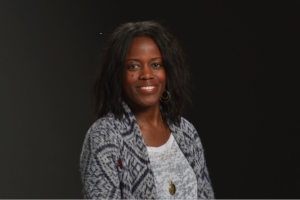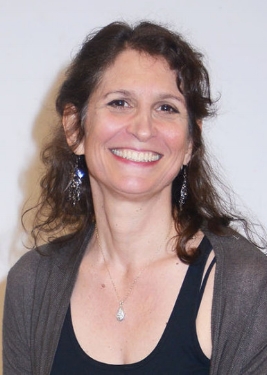We spoke with Dido of Idaho playwright Abby Rosebrock about her experiences as both a playwright & actor, working on her new play, and the powerful messages she's pulled from the story of Dido and Aeneas.
What drew you to playwriting?
I do a lot of different kinds of writing for performance, but playwriting is probably the best outlet for my obsession with music, language and the math of comedy. I love working with voices as a creative medium. Transcribing voices, crafting new and hybrid voices, writing for the voices of specific actors. It's a miracle that everyone on earth speaks a unique language with its own internal poetics and comic machinery. I get hopelessly engrossed in finding the beauty and humor in the tiniest idiosyncrasies of a character's speech patterns. And finding the way a character's hopes and fears, psychology and cultural inheritance express themselves grammatically. And composing the music of multiple voices interacting with each other. Playwriting lends itself to crafting dialogue with that level of precision.
a rehearsal from the 2015 Youngblood Workshop of Dido of Idaho
Can you tell us briefly about the history of DIDO OF IDAHO?
I drafted a lot of the play at SPACE on Ryder Farm with Youngblood in 2015, and EST produced an early version as a workshop. It's since had a few readings around town and in Idaho and Montana.
Layla Khosh, who plays Nora, and I were talking a few years ago about how we wanted to explore themes of addiction and obsession in our work as comedic performers. Also: heterosexuality itself as destructive addiction. Around the same time, Layla and Curran Connor, who plays Nora's lover, Michael, played Dido and Aeneas in a short adaptation of that story I wrote for an EST brunch.
I sensed there was some connection between the enduring relevance of this myth – in which a rootless man exploits a queen for sex and ghosts her and goes on to found Rome, while she kills herself – and the widespread emotional and psychological problems that have been plaguing everyone I know for decades and have come to a head recently. How do we escape from the tragic stories that seem to keep playing out in our individual lives and collective histories? The play has evolved from a sort of twisted romantic comedy into an effort to answer this question.
What's the most exciting thing about working with this cast?
It just feels incredible. There's no describing what it's like to jam with actors who have comedy in their blood. They know how the language works, they trust their hearts and make the script sing. And our newest cast member, Dalia Davi, is bringing all manner of fresh insight to the story and her character of Julie.
In the play, you refer to DIDO AND AENEAS as “the central founding myth of western civilization.” Can you tell us a little bit more about this idea?
The most famous version of this story appears in The Aeneid, Virgil's Latin epic about the founding of Rome. Aeneas is the hero, laid low by the Trojan War, but destined to make his way to Italy and start an empire. Like many archetypal heroes, he has an affair with a woman who's more or less a human pit stop on his journey to becoming the best version of himself. He thinks she's a fun distraction from work; she thinks it's true love. What's remarkable about this story is that Dido has an empire of her own when Aeneas washes up, itinerant, on her shores. She's overcome all kinds of obstacles to make a political career, and she and Aeneas have this beautiful meeting of minds. But once he's worked through whatever feelings he needed to work through, he leaves her behind to focus on work and marry for convenience. This is how the dominant voices in western civilization have defined Honor for thousands of years.
Dido is emotionally destroyed, convinced she'll never find love in a world designed for powerful men and small women, and kills herself. She's completely undone by daring to believe that women can be both powerful and fully loved. Her suicide is a tragic but logical response to a culture that breeds, accommodates and empowers dysfunctional men, that compartmentalizes love as a secondary aspect of life, and that tends to gaslight and marginalize people who assert that love and sex are as sacred and important to human development as work and commerce are. Our fearful complacency in trivializing love; in holding onto lazy, self-sabotaging emotional attachments; in buying into narratives that valorize male recklessness: these things can plummet us to rock bottom as individuals and collectives. (Cast member Dawn McGee, who plays Ethel, recently sent around a brilliant Vanity Fair article about this by Monica Lewinsky, who comes up in the play a lot.) The solution has to be spiritual in nature, a dismantling of artificial distinctions between genders and between public and private life, and a letting go of what we know in the name of creating what we want and need. I wanted to write the boldest and funniest play I could about that, to offer myself and others hope of transformation.
What has it been like working as both an actor and playwright for this show?
An actor-playwright's mode of working is not unlike that of a songwriter in a band. You're performing in a band you've written some songs for. And nobody's precious in rehearsal about saying, I don't get what's happening here, and sometimes people goof off and improvise and then graciously assent to seeing their riffs in the script the next day. (There's a lewd act with a pillow that came about this way.) I love the energy that dynamic creates; it frees my mind and grounds me, especially when the team is this committed and good. And wild. Our director Mikhaela Mahony facilitates all this with a unique ease and grace.
Dido of Idaho begins performances March 14th, don't miss out!











